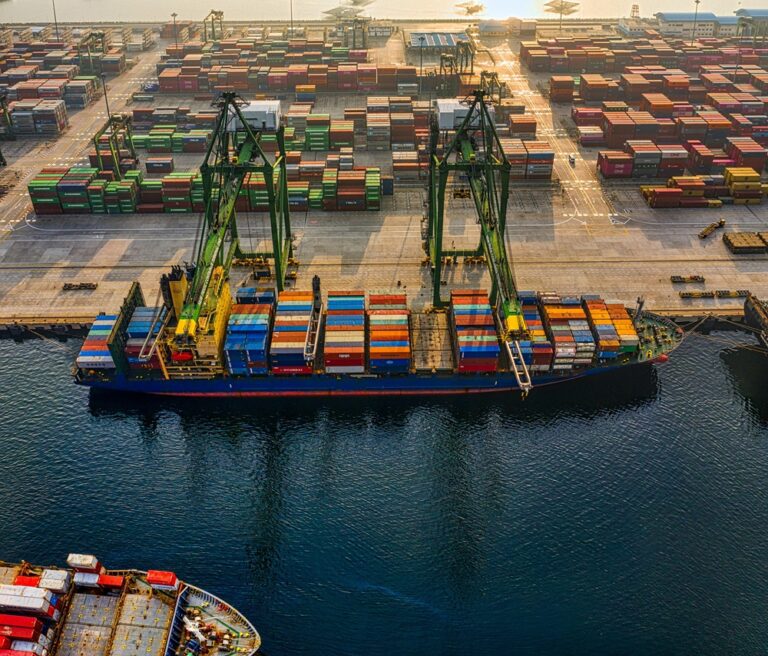For B2B brands, nothing is more frustrating than a supply chain bottleneck; in fact, recent industry analysis shows that over 75% of end users cite delivery delays and parts availability as their biggest concern. You rely on flawless, consistent access to materials to keep production lines moving and meet customer commitments. When a business needs to source containers across multiple states, personnel quickly learn that regional vendors cannot provide the stability a national operation demands. A business needs a trusted partner, not just a vendor, to navigate these geographic challenges. This article outlines the complexities of national sourcing and demonstrates how choosing a strategic container wholesale supplier protects a brand and secures product integrity across the entire country.
Understanding the Logistical Challenge of National Sourcing
A fragmented supply chain is the most significant risk when operating a nationwide brand. This challenge occurs when a business attempts to source its packaging components from a patchwork of local or regional vendors. While buying locally may seem simpler, it creates inconsistencies in everything from quality control to lead times and pricing.
The core challenge centers on scale and standardization. A supplier must manage vast inventory, robust quality assurance protocols, and complex logistics across the entire service area. A regional distributor in a major hub like Chicago Heights, IL, might offer a fast turnaround, but how do they handle a sudden spike in demand for a facility in California? This lack of centralized expertise forces the internal team to manage multiple relationships, different contracts, and varied compliance standards. The key risks of a fragmented supply chain are significant, including inconsistent product specifications and color matching, varying Minimum Order Quantities (MOQs) and pricing tiers, non-standardized compliance documentation, and unreliable delivery schedules due to a lack of national logistics control.
Mitigating the Risk of Geographic Supply Interruption for B2B Clients
Regional disruptions introduce variables that directly threaten profit margins and brand reputation. Consider the scenario of a sudden rail closure or port congestion: a regional supplier’s single warehouse becomes a major liability. When products need to move across state lines, planning must account for regulatory hurdles, weather delays, and localized labor issues. Why should a production schedule be held hostage by a logistical problem 2,000 miles away?
A national supplier acts as a buffer against these localized shocks. They leverage multiple distribution points and a diversified logistics network to reroute and secure shipments, ensuring the materials ordered arrive on time. An experienced partner understands that packaging, whether a simple glass jar or complex dispensing cap, is essential inventory. This level of foresight is vital for B2B brands, where consistency is the foundation of customer trust.
Supply Chain Expertise and Geographic Footprint (Service Area)
A nationwide distributor, like Ashland Container Corp., does not just ship products; they manage a complex network designed for resilience. The distributor’s decades of expertise allow them to optimize shipping lanes and anticipate regional material pressures before they become crises. This is the difference between purchasing a product and investing in supply chain security.
Inventory Management and Flexible Logistics Solutions
If a business faces fluctuating market demands, the partner’s warehousing strategy is key. A national supplier should offer flexible inventory options, potentially holding stock near various facilities. This minimizes lead times from weeks to days. Ask prospective suppliers about their stock rotation and dedicated inventory programs; a strong partner actively prevents stockouts.
Sourcing Solutions for Niche Material Producers
For businesses requiring durable, chemical-resistant packaging, sourcing from metal container manufacturers is a necessity. A national distributor brings sourcing strength that ensures access to specialized components, such as high-grade steel drums or aluminum cans, irrespective of location. They maintain relationships with diverse manufacturers, mitigating the risk of relying on a single facility’s production schedule.
Compliance and Quality in Specialized Component Logistics
The pharmaceutical sector demands absolute compliance and quality. When dealing with specialized medical components, the logistics network must uphold strict regulatory and temperature controls from the manufacturer to the facility in Chicago Heights or Palatine. The right national partner will integrate quality control processes into their logistics, providing the necessary documentation and traceability to meet evolving FDA requirements. Can the current supplier truly guarantee cGMP compliance from coast to coast?
The Onboarding Process: Partnering with a National Distributor
Partnering with a national supplier should feel like streamlining a business, not complicating it. The full-service approach starts with a comprehensive consultation and moves through a transparent, multi-stage process. The process of securing packaging typically follows a structured path. This begins with an Initial Consultation where the partner defines the exact product needs (material, size, closure type, and volume) across all operating regions. Following this, Designs and a Quotation are solidified, and a comprehensive quote is provided, outlining all costs, including freight and warehousing fees. Then, Quality Assurance is performed as samples and prototypes are secured and vetted, ensuring the components meet specifications and industry standards. Finally, Logistics Planning occurs where a dedicated strategy is developed, determining which distribution centers will feed the various regional facilities. This transparent, step-by-step methodology, backed by decades of experience, ensures that a solution, such as custom pharma packaging, is executed flawlessly from concept to delivery.
Focus on Value: How a Full-Service Partner Reduces Long-Term Costs
While the unit price from a supplier may seem higher than a discount broker, the overall value proposition is superior. The true cost of packaging involves more than the sticker price; it includes the expense of inventory delays, product damage, and brand dilution from inconsistent quality.
When a business invests in a full-service partner like Ashland Container Corp., it gains access to innovative custom solutions and flexible terms that reduce risk and increase efficiency. The partner’s specialized sourcing and warehousing expertise translates directly into reduced inventory carrying costs and fewer production line halts. This focus on long-term partnership delivers a strong return on investment (ROI) that no purely transactional vendor can match.
Selecting a Partner: Why Broad Expertise is Critical
Navigating the complexities of a nationwide supply chain demands a partner with proven experience and a deep commitment to excellence. A business needs a distributor who offers more than just a catalog of products; it needs a full-service packaging partner. The partner’s 50+ years of expertise supports the understanding that protection and presentation are intrinsically linked, providing reliable and innovative packaging solutions for B2B brands across the US. From the sensitive needs of specialized components to the robust requirements of industrial materials, the partner stands ready to support national operations.
To begin the process of strengthening a material supply and ensuring consistent product quality, the best course of action is to reach out to an experienced team to assist in the evaluation of specific project needs.






